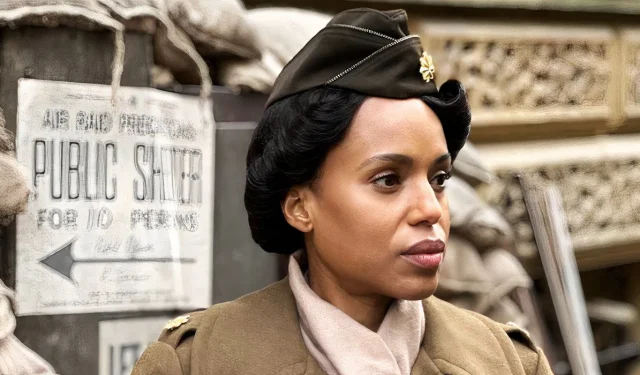
Warning: This article contains spoilers for The Six Triple Eight.
The Six Triple Eight, directed by Tyler Perry, is a compelling cinematic portrayal of the remarkable yet largely overlooked story of the 6888th Central Postal Directory Battalion during World War II. This all-Black, all-female unit was not only groundbreaking but also instrumental in ensuring that American soldiers received vital correspondence from loved ones during a critical time. Lead actress Kerry Washington embodies Major Charity Adams, the battalion’s commanding officer and the first Black woman to achieve an officer rank in the Women’s Army Corps.
During the war, a staggering backlog of over 17 million pieces of mail became a major issue, affecting the morale of troops who were cut off from communication with family and friends. This urgent problem increased the emotional toll on soldiers, as their loved ones agonized over the silence from the front lines. The film captures the challenges faced by the 6888th Battalion and highlights their crucial role as unsung heroes in this narrative.
How the Six Triple Eight Efficiently Sorted Through 17 Million Pieces of Mail in Less Than 90 Days
Innovative Strategies and Tireless Dedication
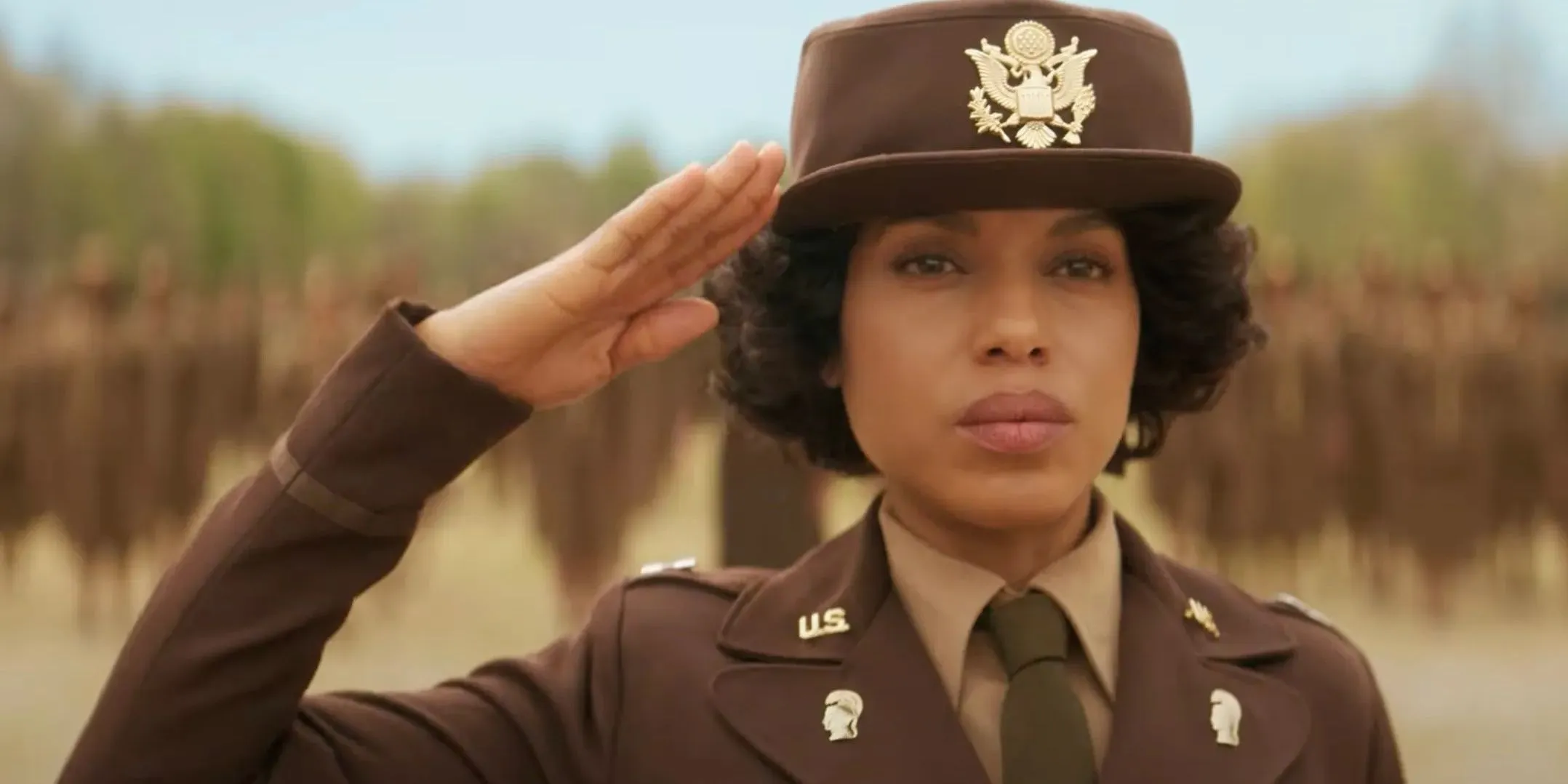
In the face of adversity, General Halt (played by Dean Norris) underestimated the capabilities of the 6888th Battalion by placing them in challenging conditions and giving them a mere six months to complete their monumental task. Under the leadership of Major Adams, the battalion rose to the challenge and sorted through the enormous mail backlog in less than 90 days. By dividing their efforts into day and night shifts, they made continuous progress around the clock, employing innovative strategies to tackle the issue head-on.
One of their clever methods involved analyzing the dates on letters to trace their intended destinations. In instances where details were scant, they would open the envelopes to search for clues about their recipients. Notably, for letters that were scented, the soldiers used their knowledge of various perfumes to connect the sender to specific regions, further assisting in accurate delivery.
The Significance of the Blood-Stained Letter
A Message of Love and Resilience
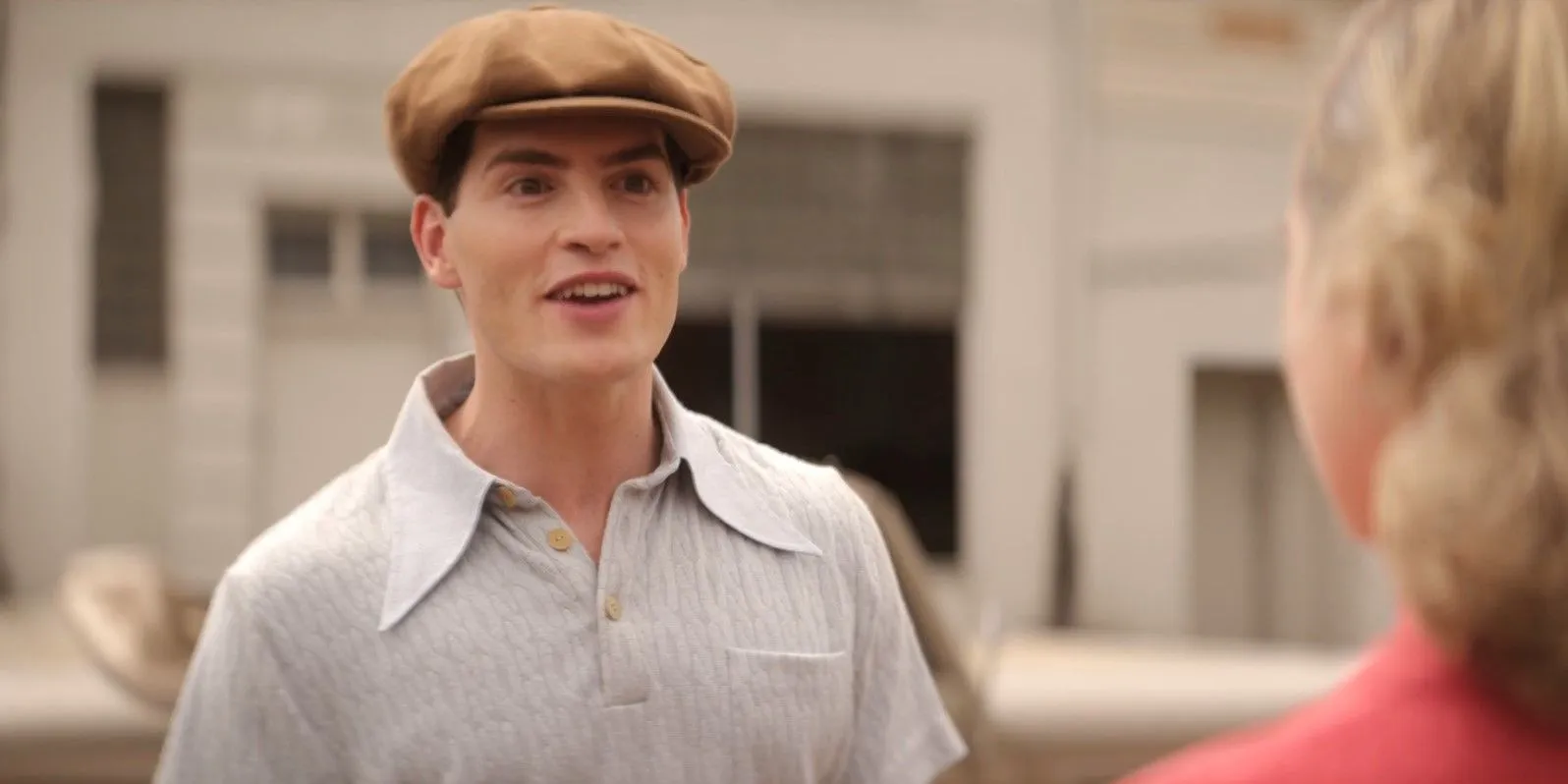
The narrative of The Six Triple Eight opens with a poignant scene involving a blood-stained letter, written by Abram David (Gregg Sulkin), a pilot who tragically crashes in a battlefield. Abram’s love for Lena Derriecott King (Ebony Obsidian) is immortalized in his letter, which he penned before his untimely death. His heartfelt words express not only his love but also his desire for Lena to thrive and cherish life even in his absence, compelling her to join the war effort through the 6888th Battalion.
During the intense sorting process, Lena’s fellow soldier, Johnnie Mae (Shantice Shanay), discovers this blood-stained letter, which encapsulates a powerful message that transcends loss and despair. It serves as a reminder of hope and the enduring spirit of those left behind.
The Impact of the 6888th Battalion on World War II
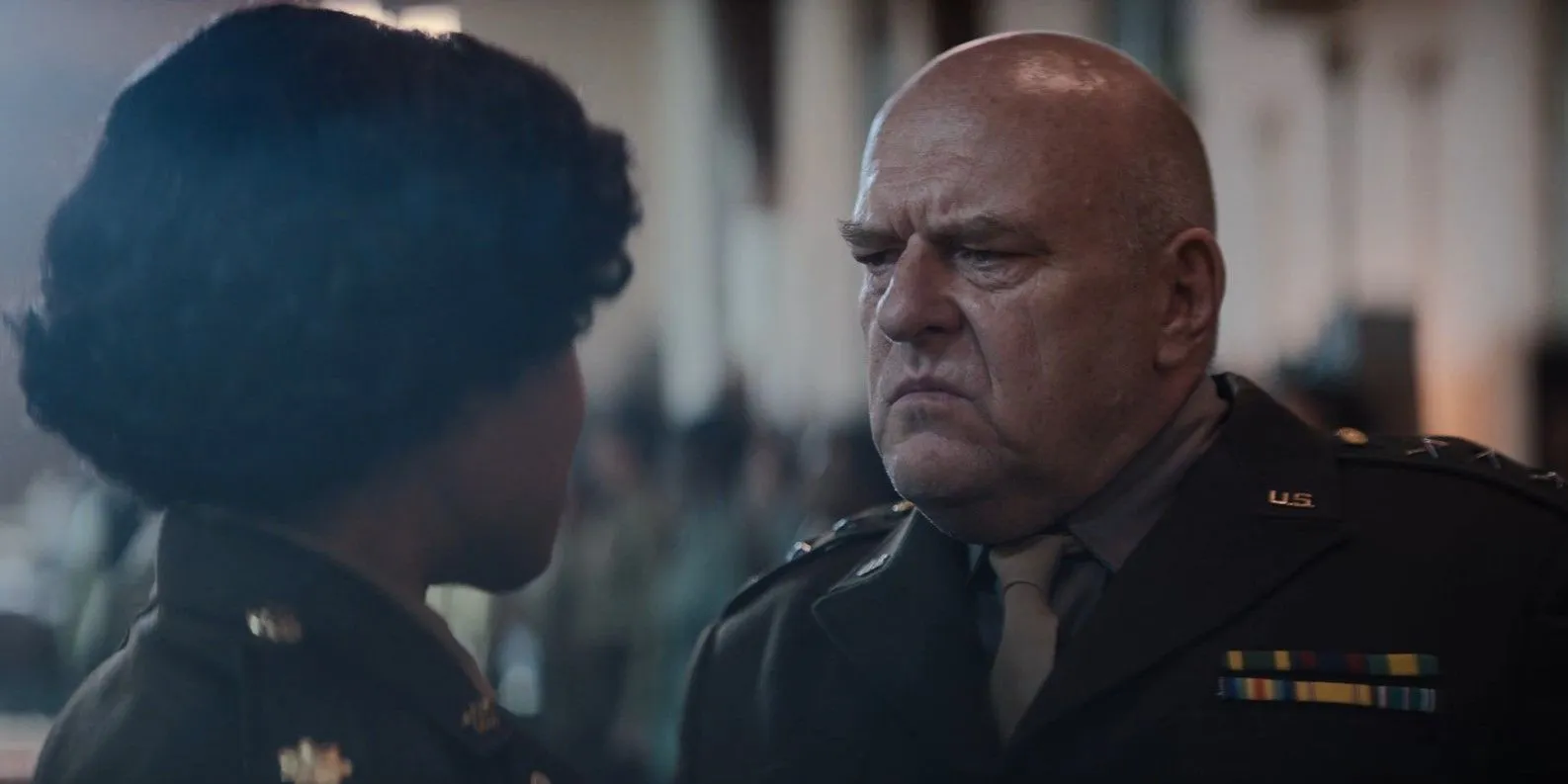
In the conclusion of the film, the delivery of the sorted letters brings joy to soldiers stationed abroad, highlighting the significant morale boost that the 6888th Battalion provided in the final months of World War II. As soldiers reunited with messages from home in 1945, the emotional impact cannot be overstated. This resurgence of hope was crucial during the war’s last brutal stretch.
Despite facing prejudice and discrimination from some military counterparts, the battalion garnered respect from others who recognized their invaluable contributions to the war effort.
Recognition for the 6888th Battalion: A Long Overdue Acknowledgment
Decades-Long Wait for Recognition
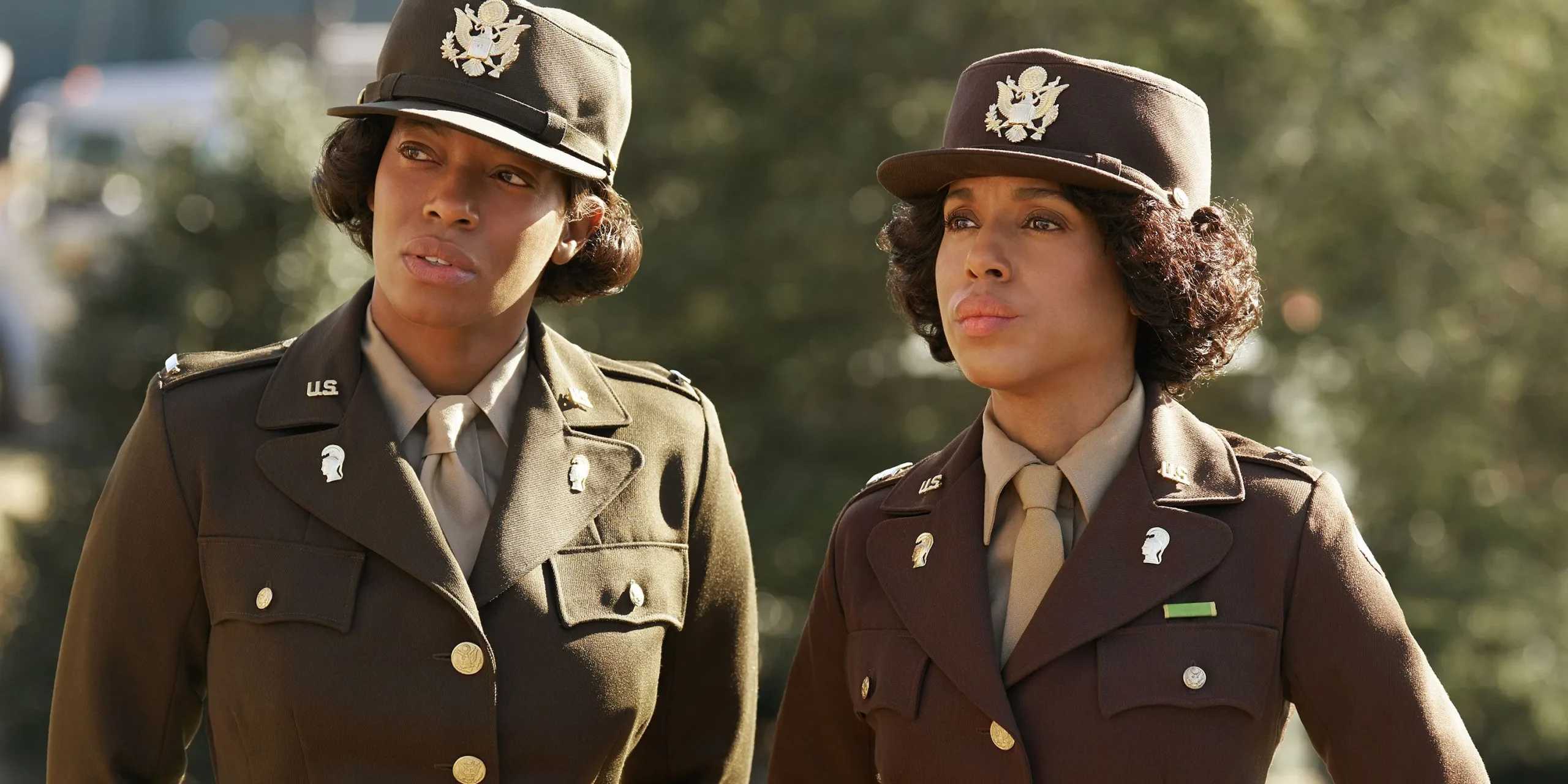
Upon their return to the United States, the members of the 6888th Battalion received little to no recognition for their remarkable contributions. In fact, they often found themselves treated better abroad than at home. It took until the Obama administration for these women to be rightfully honored, culminating in the award of the Congressional Gold Medal of Service and the establishment of a memorial to celebrate their achievements.
During the credits of the film, First Lady Michelle Obama pays tribute to two battalion members, Mary Ragland and Alyce Dixon, recognizing the historical significance of their service as the only all-Black, all-female unit to serve overseas during the war. The film aims to shed light on the profound legacy of the 6888th Battalion, ensuring that their story is acknowledged and remembered.
The Aftermath: Life After World War II for the 6888th Battalion
The Real Lena’s Journey
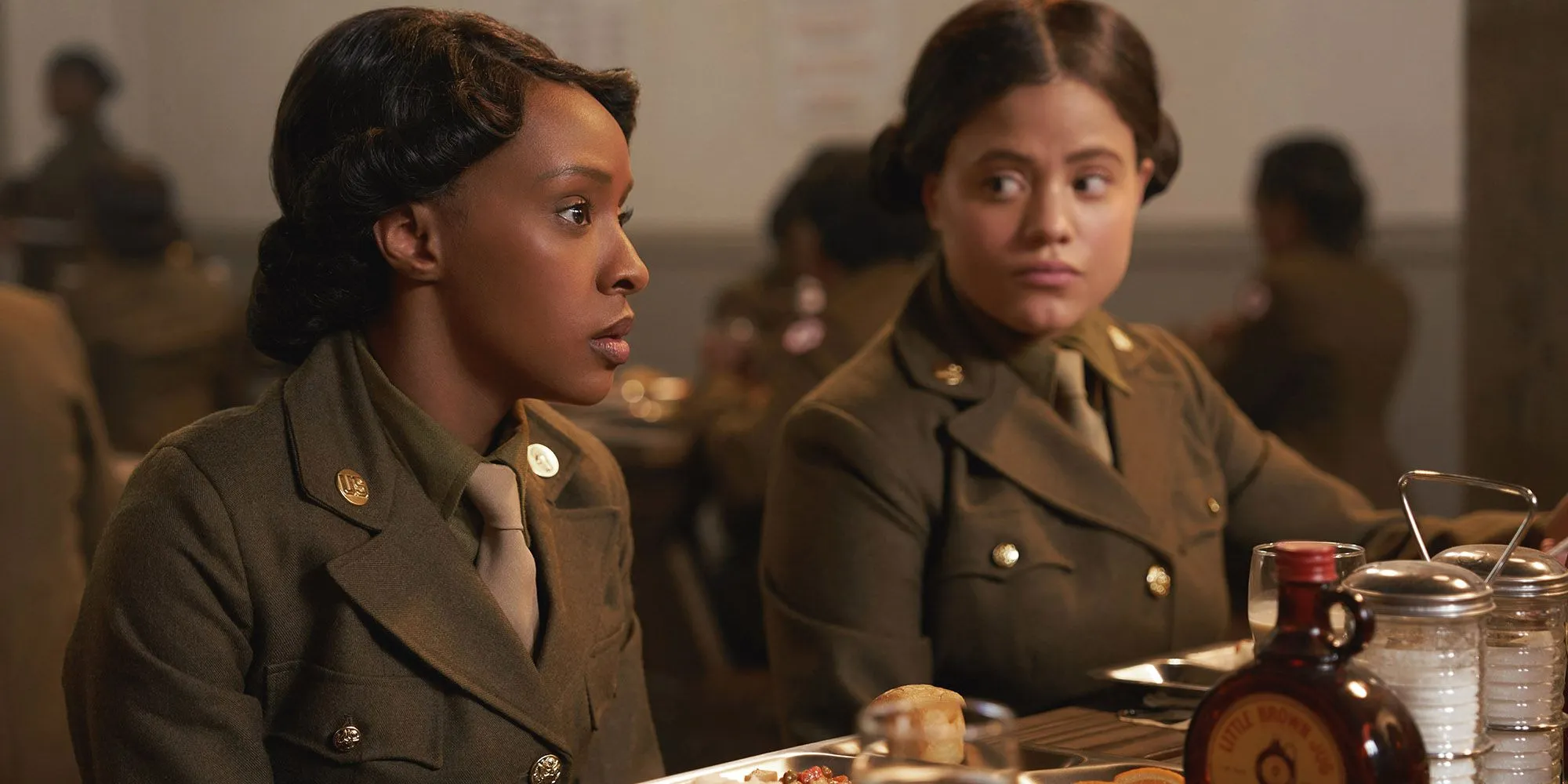
Following their impressive feat of efficiently sorting through millions of pieces of mail, the 6888th Battalion was assigned to help tackle another backlog of correspondence in Rouen, France. After fulfilling their duties, the unit returned to civilian life with little recognition or celebration of their service. Major Adams later went on to lead an impactful life, getting married, raising two children, and dedicating herself to education and advocacy, eventually becoming a college dean. She also founded the Black Leadership Development Program, honoring her legacy of service.
The real-life Lena married Private Hugh Bell (Jay Reeves), whom she met during her tenure with the battalion. At the film’s conclusion, the now 100-year-old Lena personally reflects on her experiences, conveying a sense of historical connection and continuity. Meanwhile, Major Adams advanced to the rank of lieutenant colonel and contributed her expertise within the Pentagon.
The Core Message of The Six Triple Eight
An Inspiring Tale of Hope and Resilience
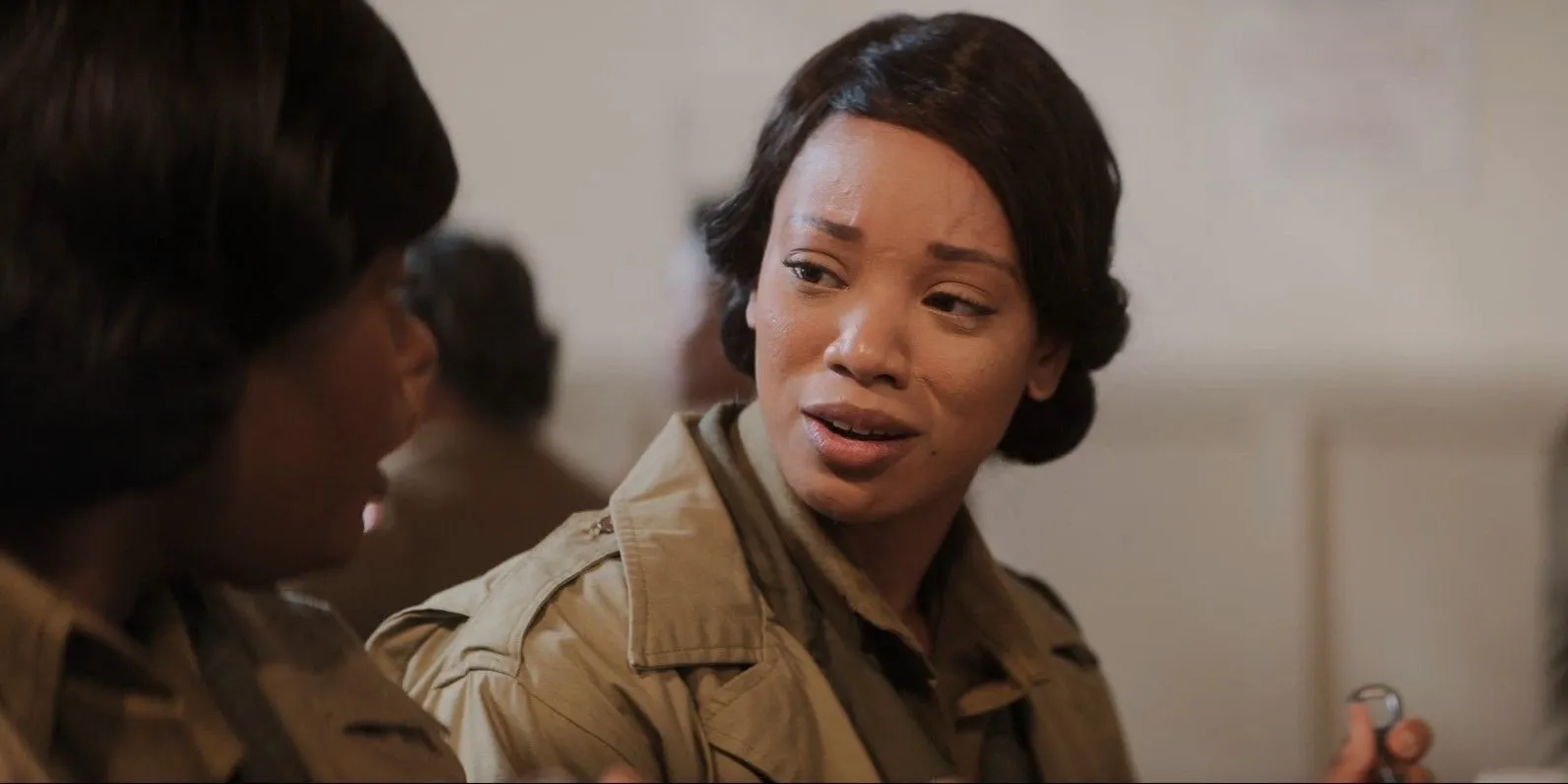
The Six Triple Eight encapsulates a profound narrative of hope, resilience, and the triumph of unsung heroes. The unit members, often dismissed and undermined due to their race and gender, demonstrated unwavering commitment. Through teamwork and ingenuity, they ensured critical communications reached soldiers, profoundly impacting countless lives.
This compelling story stands among other notable World War II films, shedding light on lesser-known acts of bravery and valor. Tyler Perry’s dedication to portraying the remarkable history of the 6888th Battalion ensures that their legacy will not fade into obscurity. The women served not for recognition, but out of a deep sense of duty and purpose. The Six Triple Eight serves as a powerful reminder of the impact of unsung heroes in history.
Source: National Museum of the United States Army




Leave a Reply